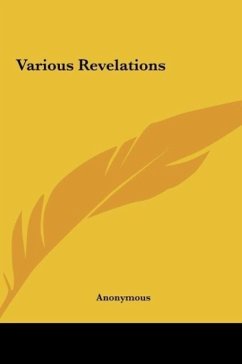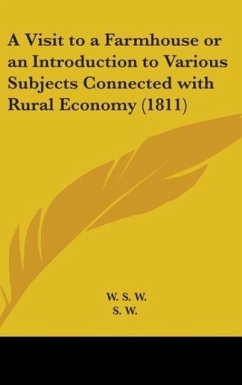
Various Revelations

PAYBACK Punkte
19 °P sammeln!
1876. Found in this work are various revelations, with an account of the Garden of Eden, and the settlement of the Eastern Continent, as related by the leaders of the wandering tribes; from the age of Enoch, Seth and Noah, to the birth of Jesus of Nazareth, as related by Mary his mother and Joseph the foster-father; with a confirmation of his crucifixion and resurrection, as related by Pilate and the different Apostles. Also an account of the settlement of the North American continent, and the birth of the individualized spirit which has followed, with a report of the important work of establi...
1876. Found in this work are various revelations, with an account of the Garden of Eden, and the settlement of the Eastern Continent, as related by the leaders of the wandering tribes; from the age of Enoch, Seth and Noah, to the birth of Jesus of Nazareth, as related by Mary his mother and Joseph the foster-father; with a confirmation of his crucifixion and resurrection, as related by Pilate and the different Apostles. Also an account of the settlement of the North American continent, and the birth of the individualized spirit which has followed, with a report of the important work of establishing order in the dark sphere of the spirit, where the tribes of Israel and of Judah, with the gentile nations, have been gathered together around a platform of eternal justice: where Jesus, the Savior, with the Apostles, the witnesses of his earthly mission, have pronounced the expected justice. Also, many important reports from statesmen, poets and scientists, from clergymen and warriors, who have attained to honorable position in the annals of American history.












